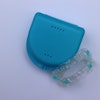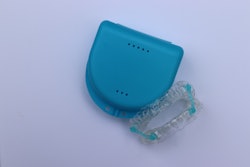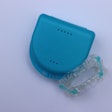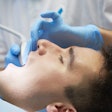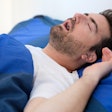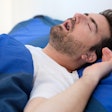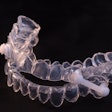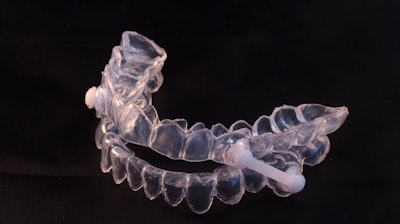
Continuous positive airway pressure (CPAP) is the first-line of defense for hypertension associated with sleep apnea, but some patients struggle with compliance. Mandibular advancement offers an alternative, according to research published in the Journal of American College of Cardiology.
A mandibular advancement device (MAD) is as effective as CPAP in lowering blood pressure (BP) in hypertensive obstructive sleep apnea (OSA) patients. MAD shows particular benefits during sleep, suggesting it is a valuable first-line alternative for reducing cardiovascular risk, according to the study.
"There is evidence that MAD improves OSA symptoms and quality of life, and meta-analyses have suggested that MAD and CPAP are similarly effective in reducing BP," wrote the authors, led by Dr. Chi-Hang Lee of the National University Heart Centre in Singapore (J Am Coll Cardiol, March 4, 2024).
The study assessed MAD and CPAP in reducing 24-hour ambulatory blood pressure. A total of 321 participants with hypertension and elevated cardiovascular risk were enrolled in a randomized trial across three hospitals. Furthermore, 220 individuals with moderate to severe OSA were randomized (1-to-1) to MAD or CPAP. The primary outcome measured the difference in 24-hour mean arterial blood pressure at baseline and six months.
At six months, MAD showed a significant decrease in 24-hour mean arterial blood pressure by 2.5 mmHg (p = 0.003), while the CPAP group showed no change (p = 0.374). MAD also outperformed CPAP in all secondary ambulatory blood pressure parameters, especially in blood pressure during sleep. Both treatments improved daytime sleepiness similarly (p = 0.384), with no differences in cardiovascular biomarkers, according to the results.
However, the study had limitations. Most participants lacked daytime sleepiness, as they were primarily recruited from internal medicine and cardiology clinics. Therefore, the findings may not fully apply to patients from sleep clinics, where sleepiness symptoms are more prevalent, the authors wrote.
"MAD is non-inferior to CPAP for reducing 24-hour mean arterial BP in participants with hypertension and moderate-to-severe OSA," Lee et al concluded.


